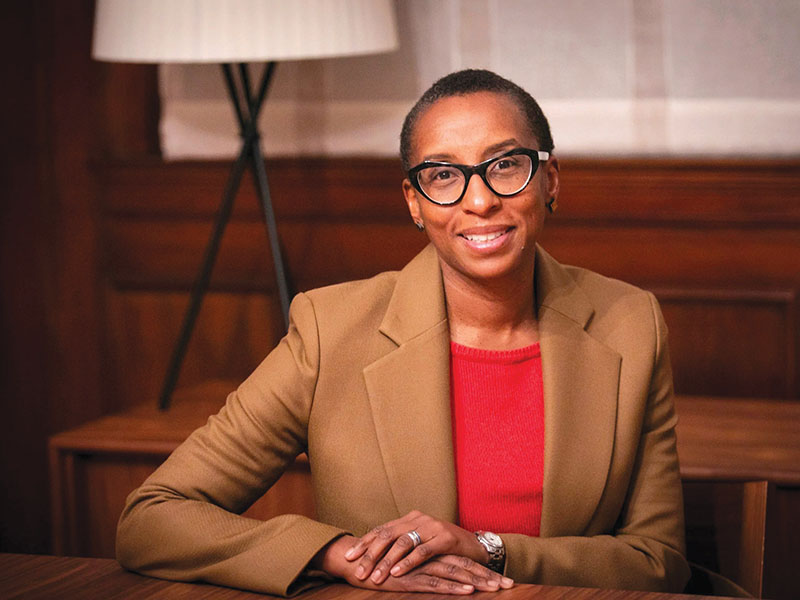
By surrendering to a political mob despite the apparent protection of the world’s most powerful university, Claudine Gay has set a precedent that has left academics wondering who can possibly survive the rising ideological crusades of America.
On January 2, Prof. Gay stepped down as president of Harvard University after six months of stifling pressure from an alignment of conservative forces, navigating the howls of pro-Israel activists, only to succumb to borderline complaints about poor editing in her past scholarly writings. It amounts to a politically based toppling of the leader of the nation’s most prestigious and well-endowed university, say several academics, with ominous implications for anyone else in academia who dares to persistently challenge the interests of US political and economic wealth.
The ultimate success of the plagiarism complaints as the apparently determinative weapon against Prof. Gay, academics warn, is especially worrying, since it is an allegation that is becoming very easy to raise with the help of advanced computer tools and often very difficult to adjudicate in a fair and consistent manner. “Very few of us can probably withstand that kind of scrutiny,” says Jennifer Ruth, professor of film studies at Portland State University who writes on issues of academic freedom through the American Association of University Professors. “By giving in, Harvard has set the stage for continuing the expansion of this kind of scare and chilling of academic freedom and targeting of higher ed.”
The endgame for Prof. Gay began last December, when she and the heads of two other elite US universities — all women relatively new to their presidencies — agreed to appear before Congress to answer Republican allegations that student protests against Israeli military attacks on Palestinian civilians amounted to campus tolerance of anti-semitism. That moment of political theatre — combined with sustained criticism from wealthy individual donors — soon led one of the presidents, Elizabeth Magill of the University of Pennsylvania, to step down.
Prof. Gay appeared to have survived the moment, backed by hundreds of faculty demanding that she stay. But she then became consumed by a parallel campaign by conservative activists compiling a list of more than 40 instances — typically brief excerpts of a few sentences or less — that they put forth as evidence that her scholarly record was marred by repeatedly citing others without proper credit.
Prof. Gay — the first black president of the nation’s oldest and most prestigious university — said she had resigned “in the best interests of Harvard” to let the institution move forward. In a subsequent article for The New York Times, she described a brief presidency filled with constant attacks including death threats, and urged academic colleagues nationwide not to succumb to “the loudest and most extreme voices in our culture”.
She acknowledged that her critics were able to find “instances in my academic writings where some material duplicated other scholars’ language without proper attribution”, but said she immediately corrected such “errors”, and “never misrepresented my research findings, nor have I ever claimed credit for the research of others”.
Yet there is little evidence, says Prof. Ruth, that Prof. Gay’s critics were interested in that type of attentive analysis. Even her chief critic in the congressional hearing, Elise Stefanik, was accused by a Democratic colleague of copying large portions of a letter she sent to the Harvard, Penn and Massachusetts Institute of Technology presidents after the hearing demanding their resignations. Ms Stefanik dismissed the duplication as “something that happens every day on Capitol Hill”.
Also read: Time for Gandhian two states solution